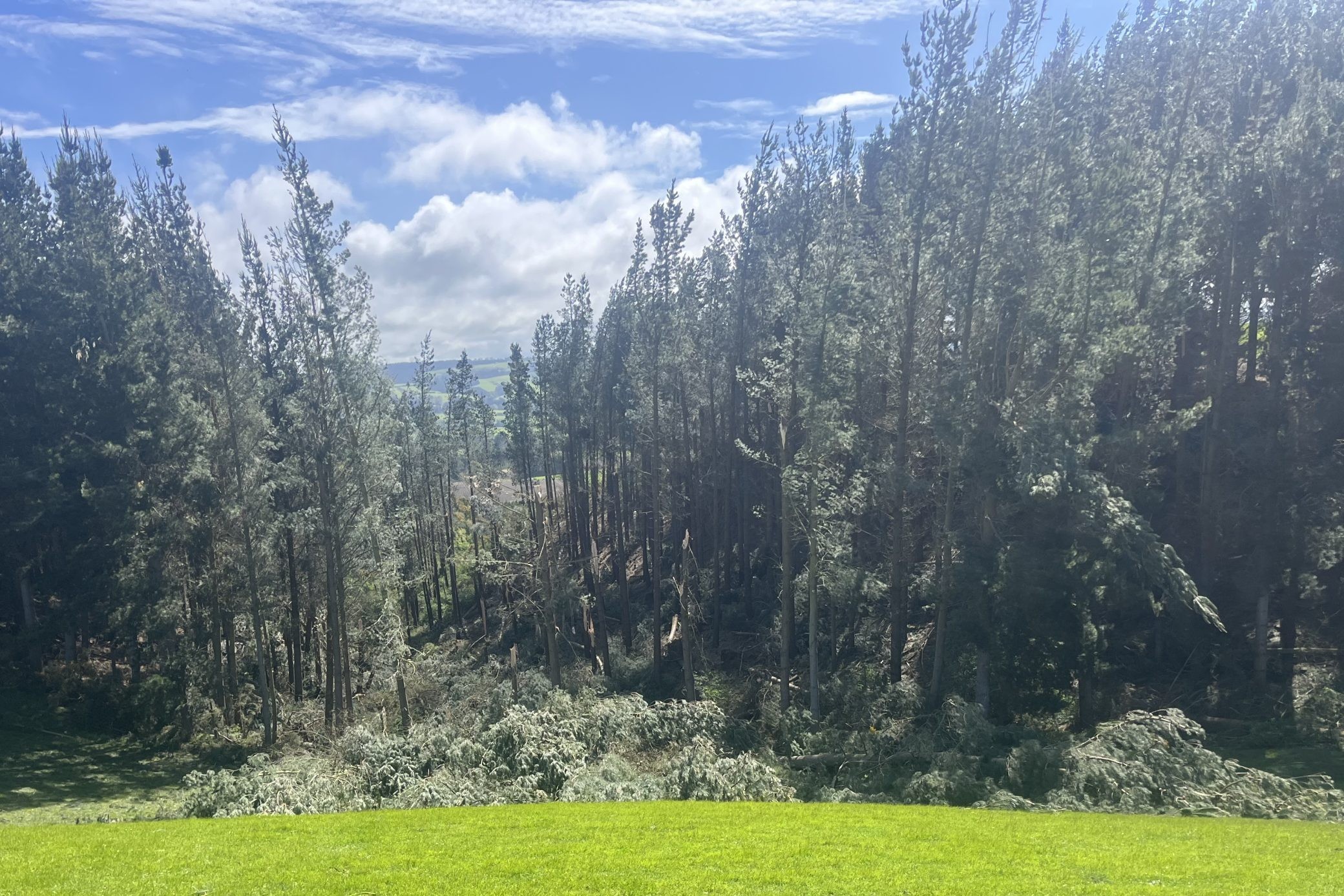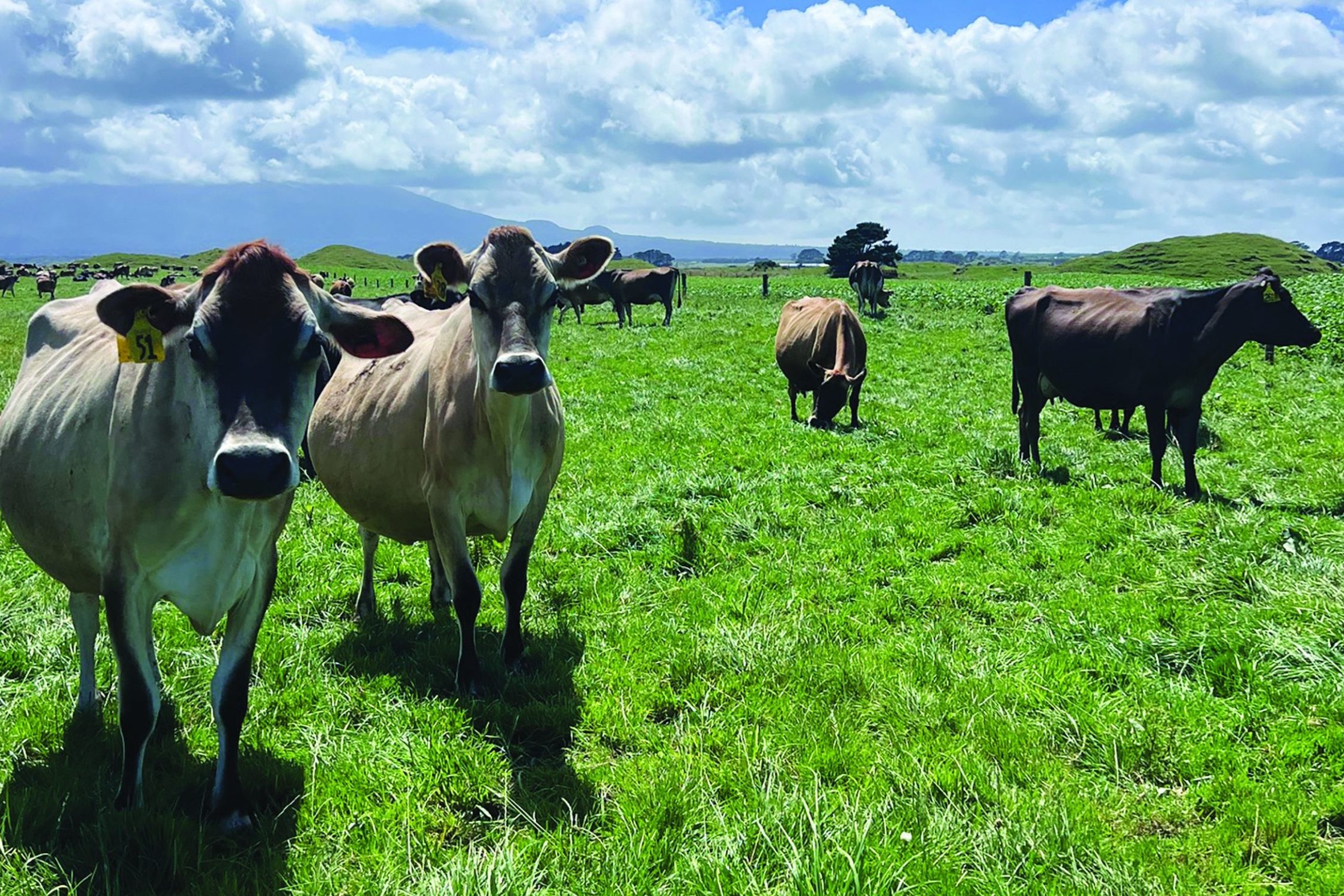Words: Lynda Gray
Could flax seed oil be a cure for bloat in cattle?
It’s early days but there are promising signs from a grass-roots trial at Lorne Peak Station, a Beef + Lamb New Zealand Innovation Farm.
The broad aim of the three-year Innovation Farm Project on Matt and Shona Tayler’s extensive Northern Southland farm is to develop high-performance beef finishing options in the summer dry climate, using high quality forages namely lucerne and possibly sub clover.
Hand-in-hand with the grazing of cattle on lucerne is the risk of bloat, a problem they’re looking to control with a combination of grazing management and minimal intervention treatments such as oils and capsules. But the Taylers want to steer clear of chemical-laden remedies.
Since the project kicked off in mid-2017 several treatments have been trialled with varying degrees of success. Rumensin capsules were the first and obvious go-to but side-lined after obvious signs of them having been regurgitated by cattle. Another factor against this antibiotic treatment was the risk that they may eventually be ruled out in the Silver Fern Farms Beef EQ programme the Taylers supply. Bloat oil (Bloatenz), dispensed from Dosatron water supply injectors was considered but ruled out because of house water being drawn off the same reticulated system. Another negative was that numerous sheep not needing treatment would be drinking water infused with bloat oil which is toxic to lambs prior to rumen development. A possible solution was the use of 48-hour controlled-release Peta dispensers floating on top of individual water troughs but the constant checking needed to make sure they were in working order made them impractical on a farm the size and scale of Lorne Peak.
A Eureka moment was a comment from steering committee member Alistair Hunt, a former British farmer who had successfully used flax seed oil. Organic, chemical-free and cheap, the decision was made to go ahead and trial the treatment.
A 200-litre drum, costing about $600, was delivered just before Christmas and since then Matt Tayler has added it directly to troughs. About 250-500cc (1-2.5cc head/day) is added to a 750-litre trough. It forms a yellow slick on top of the water which the cattle literally lap up.
Innovation Project leader and farm consultant Graham Butcher says there’s a lot of work and fine-tuning needed before it can be given the thumbs-up.
“Vegetable oils are a known treatment for clinical bloat but we don’t know yet what dose will keep an unbloated animal out of trouble. Realistically it’s probably going to take a couple of years to say whether or not it’s a success.”
Meanwhile he’s following up the dispensing side of things, working with an engineer to develop a Venturi-type gadget to replenish trough supply of flax seed oil.
Lorne Peak’s Innovation Project will be featured in Country-Wide’s May Beef special.
A B+LNZ field day, ‘High Octane Forages for Beef Cattle’, on April 9 at Lorne Peak will share some of the learnings to date about lucerne and bloat as part of the Innovation Farm Project.
- More? beeflambnz.com/events/blnz-southern-south-island-innovation-farm-open-day




